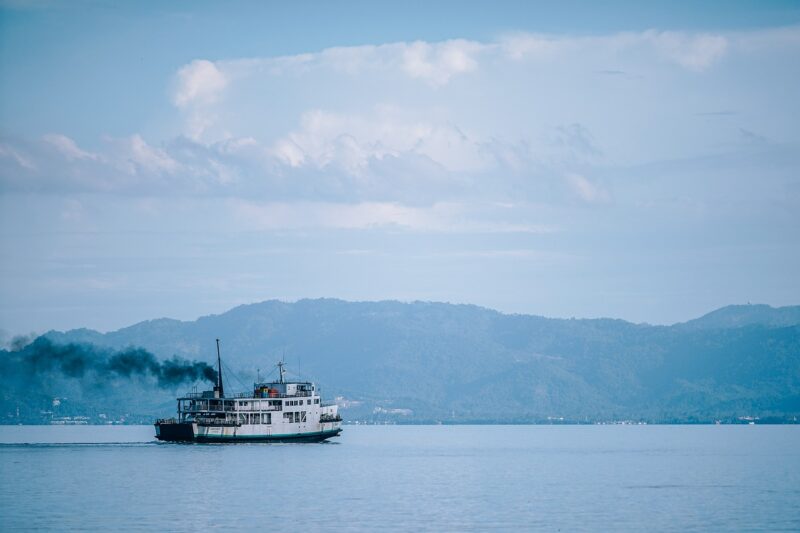How Ferries Connect Remote Communities and the Role They Play in Culture
November 11, 2024

Ferries serve as lifelines for remote communities, providing not only a crucial mode of transport but also fostering cultural exchange and social cohesion. In a world increasingly dominated by air travel and highway networks, the role of ferries in connecting islands and coastal regions cannot be overstated. This article delves into how ferries connect communities, their economic and cultural significance, and the challenges they face in contemporary society.
1. The Importance of Ferries in Connecting Communities
Ferries are essential for many isolated communities, especially those located on islands. They facilitate the movement of people, goods, and services, bridging gaps that would otherwise leave these communities cut off.
Some critical roles ferries fulfill include:
- Transportation of Goods: Ferries enable the transport of essential supplies—food, fuel, and medical supplies—helping to sustain local economies and livelihoods.
- Accessibility: By providing regular services, ferries ensure that remote communities are integrated into broader regional networks, making it easier for residents to access education, healthcare, and employment opportunities on the mainland.
- Emergency Services: In times of natural disasters, ferries can serve as critical evacuation routes or deliver aid, showcasing their importance during emergencies.
These qualities highlight how ferries play a vital role in supporting the functioning and prosperity of remote communities.
2. Cultural Significance of Ferries
Ferries are not just modes of transit; they are cultural conduits that enable exchanges among diverse populations. The interaction on board—where people from various backgrounds come together—can create a melting pot of culture, ideas, and traditions.
Here’s how ferries contribute to cultural interactions:
- Cultural Exchange: Passengers often share stories, music, and traditions during their journey, enriching the cultural tapestry of each voyage. On ferry rides, local artists may perform, sharing their creations with others, leading to a blend of traditions that strengthen community identity.
- Identity and Pride: For many island communities, ferries symbolize their connection to the mainland and represent their identity. They have become a source of pride, linking residents not only to resources but also to each other, bolstering community spirit.
- Festivals and Celebrations: Ferries often serve as venues for local celebrations, such as festivals, bringing communities together. Events might include traditional dances or community gatherings that reinforce cultural bonds while attracting visitors to the locale.
Ultimately, the ferry experience goes beyond mere transportation and becomes a shared societal experience.
3. Economic Impact of Ferries
Economically, ferries play a pivotal role in enhancing the viability of remote regions. They promote trade and tourism, essential for sustaining local economies.
Here are some economic advantages:
- Tourism Development: Easy access by ferry can lead to increased tourism. Visitors are drawn to unique destinations only reachable by ferry, benefitting local businesses such as hotels, restaurants, and shops.
- Job Creation: Ferries generate job opportunities, not only directly through ferry services but also indirectly in related sectors such as hospitality, retail, and transportation logistics.
- Support for Local Businesses: Regular ferry services can foster connections with supply chains for local producers, allowing them to reach wider markets and increasing their sales potential.
The economic benefits of ferries extend well beyond their primary function of passenger service, supporting entire communities.
4. Challenges Facing Ferry Services
Despite their many advantages, ferries face various challenges that can impact their operations and sustainability:
- Environmental Concerns: Many ferries contribute to pollution and may disrupt marine ecosystems. Shift towards greener technologies and fuels is essential to mitigate these effects while maintaining service levels.
- Financial Viability: Maintaining profitability can be challenging, especially on routes with low passenger numbers. Balancing cost recovery with affordable fares is crucial for preserving service.
- Regulation and Maintenance: Regulatory requirements can be stringent, and maintaining aging vessels can be costly, creating pressure on operators to ensure safety and reliability.
Ferry services must navigate these hurdles to continue providing a necessary link for remote communities.
5. The Future of Ferries in Our Transport Network
To adapt to the modern landscape, ferry services are evolving with technological advancements and changing societal needs:
- Electric and Hybrid Ferries: The push for sustainability is leading to developments in electric and hybrid ferries, reducing reliance on fossil fuels and minimizing environmental impacts.
- Integrated Transport Solutions: Ferries are increasingly becoming part of broader transport networks that include buses, trains, and ridesharing services, improving connectivity for travelers.
- Community Engagement: Engaging local communities in decision-making processes about ferry services ensures that their needs are met while fostering a sense of ownership and pride in local transport networks.
The future of ferry services is bright, underscored by a commitment to innovation, sustainability, and community wellbeing.
Conclusion
Ferries are much more than just boats on water; they are vital links that connect remote communities, facilitate cultural exchanges, and contribute to local economies. As transportation technologies evolve and communities strive for sustainability, ferries will likely continue to play an integral role in the social and economic fabric of our societies. Embracing their cultural significance while addressing environmental and operational challenges will be essential for the future of ferry services, ensuring they remain a critical resource for generations to come.








